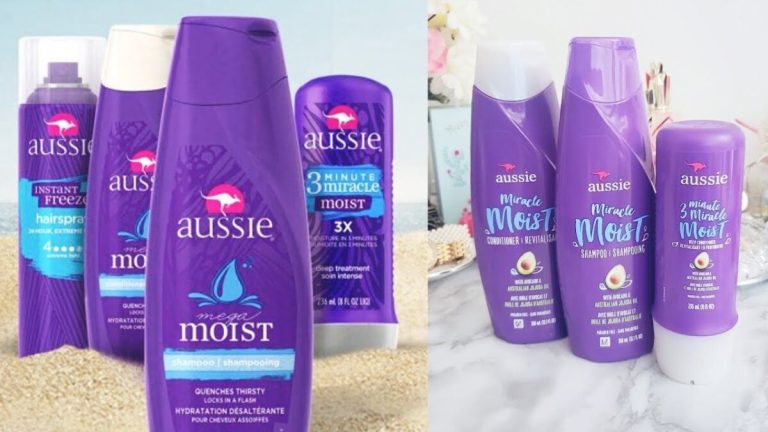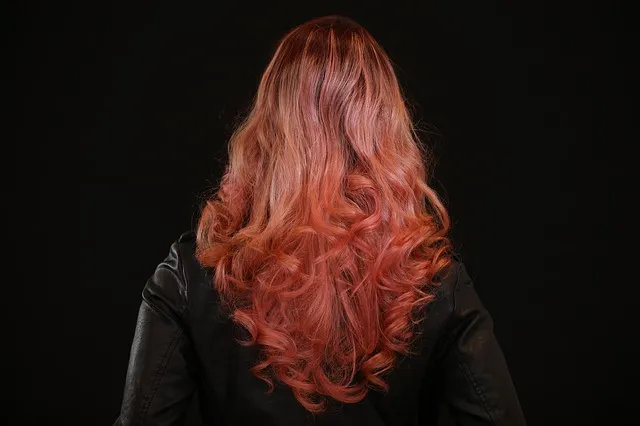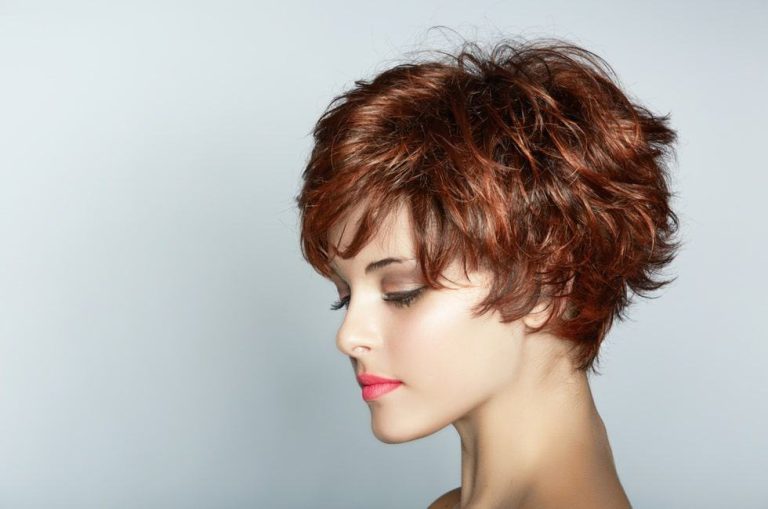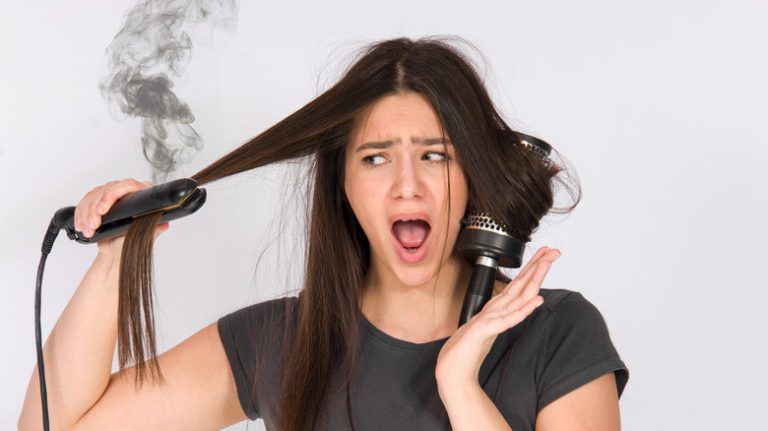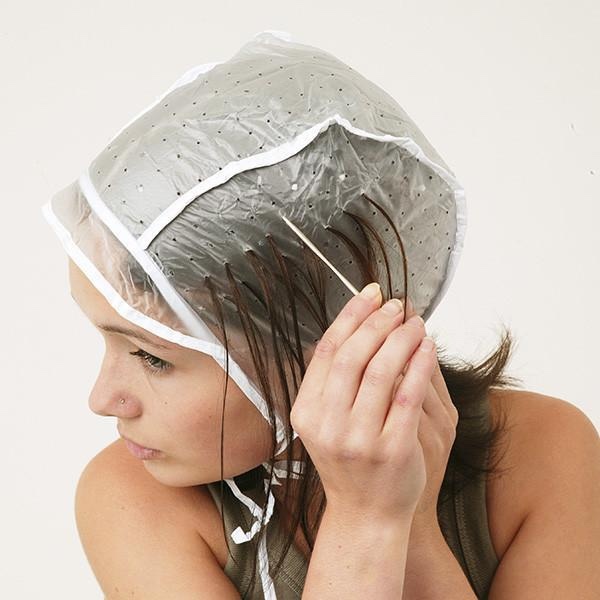Is cornstarch bad for your hair?
I am often asked about hair care ingredients and whether certain ones should be avoided. One ingredient that generates a lot of questions is cornstarch, so I wanted to provide a thorough explanation of whether cornstarch is actually bad for your hair.
What is corn starch?
Contents
First, let’s start with what cornstarch is. Cornstarch is a popular thickening agent made from corn. Specifically, cornstarch comes from the endosperm of corn kernels. Through a mechanical milling process, the germ and hull of corn kernels are removed, leaving behind the starchy endosperm, which is then dried and ground into a fine white powder.
This powder is pure starch that has a variety of uses, including as a thickening agent in recipes, to soak up oil and moisture, and even in certain beauty products. Many people have cornstarch in their kitchen pantries for cooking and baking. But there are also claims that it can harm hair—are these true? Let’s analyze further.
Does cornstarch damage hair? What the Science Says
When looking into particular ingredients, I always consult scientific research to separate fact from fiction. There are a few theories about how cornstarch could negatively impact hair:
- It dries out hair: Some sources claim cornstarch soaks up too much moisture from hair, drying it out.
- It causes buildup: There are concerns that cornstarch leaves a coating on hair that leads to product buildup.
- It encourages overgrowth of Malassezia. Malassezia is a yeast naturally found on the scalp that can cause dandruff if it grows too much. There are worries that cornstarch may feed these yeasts.
However, I was unable to find strong evidence backing up these theories. Most scientific studies on cornstarch focus on its chemical composition and use as an additive, not its effects on hair when used topically. The little research available finds corn ingredients generally do not irritate skin or hair when used properly.
Cornstarch has an extremely low potential to be an allergen. While more research is needed, the available evidence does not suggest cornstarch is inherently harmful to hair.
How Cornstarch Can Benefit Hair
Not only is there little proof that cornstarch damages hair, but it actually has properties that can benefit hair in certain situations, such as:
- Controlling oil and grease: The absorbent nature of cornstarch can help soak up excess sebum. This makes it a potential treatment for oily hair and greasy roots.
- Adding volume: Similarly to dry shampoo, cornstarch may coat strands to add volume and texture, especially at the roots. This can boost flat or limp hair.
- Soothing irritation: The soft texture of cornstarch has a soothing effect that may minimize irritation of the scalp. Its rich starch content also conditions the hair.
- Cleansing the scalp: When scrubbed into the scalp, cornstarch can help lift away dead skin cells, product buildup, and dirt. This clarifying effect may support a healthy scalp environment.
- Preventing moisture loss: Using small amounts of cornstarch can form a protective film on hair strands that locks in moisture, preventing dryness.
The key is that cornstarch must be used properly to receive these potential benefits, rather than contributing to the issues discussed previously. So how should you apply cornstarch for ideal results?
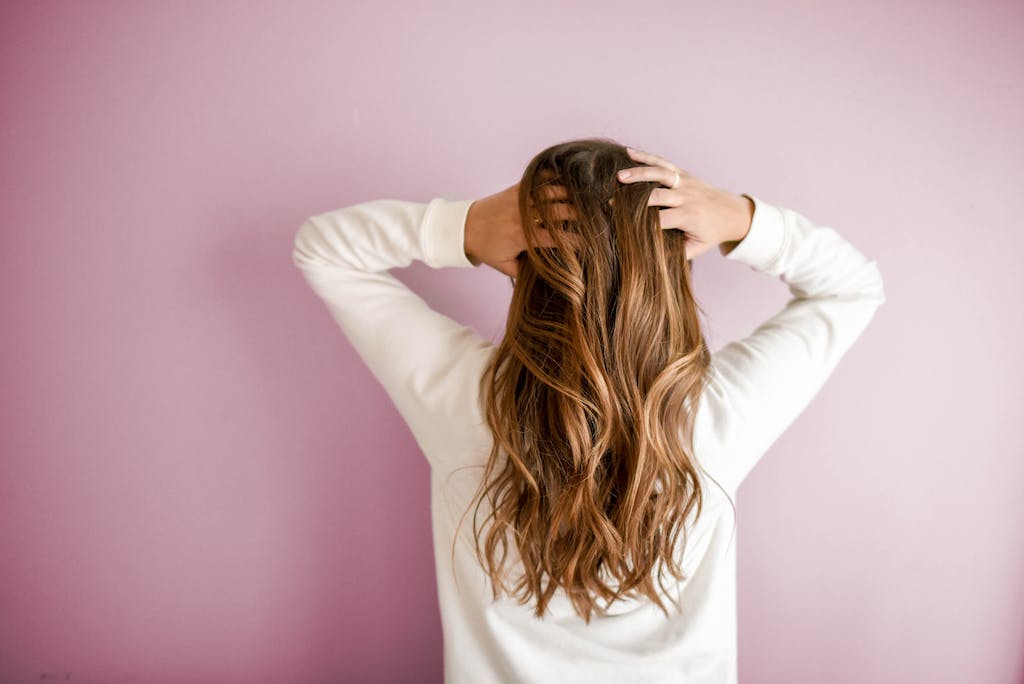
How to Properly Use Cornstarch on Hair?
To maximize benefits while avoiding problems, here are some tips on the best practices for using cornstarch on hair:
- Use minimally: Only a small amount is needed; using too much can lead to drying and buildup issues. Start with 1-2 teaspoons at most.
- Target the roots: Apply it to greasy roots and the scalp rather than heavily coating all strands to avoid weighing hair down.
- Mix with other ingredients: For example, blend cornstarch with a small amount of lemon juice and tea tree oil to balance pH and fight dandruff.
- Rinse thoroughly. Make sure to wash all cornstarch out of your hair later; leaving residue can cause accumulation and dryness over time.
- Use weekly at most: Frequently, overusing cornstarch risks moisture depletion, and irritation issues may also emerge with overuse.
- Discontinue if problems occur. If you notice increased dryness, itching, or other negative changes, stop using cornstarch.
The optimal approach is to use cornstarch sparingly on the scalp and roots once a week or less, rinsing thoroughly afterward. Make sure to mix with balancing ingredients, apply minimally, and monitor hair health closely.
My Take
In analyzing the evidence and research, I do not believe cornstarch deserves the reputation among some sources as being universally damaging to hair. When used correctly in small amounts, cornstarch has no scientific backing behind many of its harsh claims.
In fact, its oil-absorbing, clarifying, soothing, and volumizing abilities can provide certain benefits related to managing oily hair, irritated scalps, thin hair, and optimizing cleanness. Plus, it is an accessible, cost-effective ingredient found in most homes.
However, cornstarch also does not provide any exceptionally superior benefits beyond other substitutes like arrowroot powder, clay, cocoa powder, or dry shampoo. These may be alternate options if cornstarch proves problematic for your individual hair.
Additionally, using too much cornstarch or overusing it over time does run the risk of moisture depletion and buildup. Proper application and maintenance are vital for harnessing benefits without drawbacks.
Overall, I would not universally warn against cornstarch for hair care. But careful observation and minimal usage are vital for the best results, especially for those with dry or damaged hair. My stance is that cornstarch can be a helpful addition for oily scalps but is unlikely to be a hair miracle. Proceed with realistic expectations.

Founded by Sophia Rodriguez, IGXO Cosmetics is a PETA-certified, cruelty-free, and vegan makeup brand.
